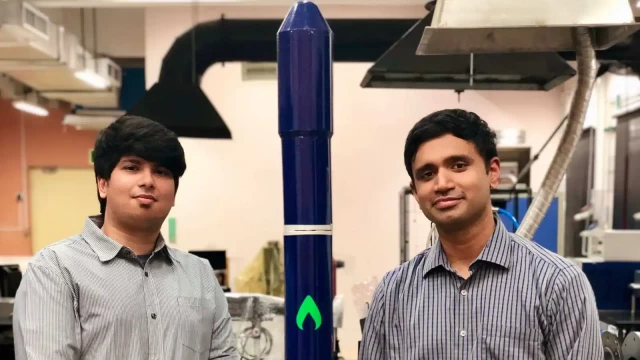Agnikul Raises $26.7 Million for Maiden Rocket Launch; Spacetech's Meteoric Rise Continues
- Posted on October 17, 2023
- Technology
- By Arijit Dutta
- 541 Views
In a significant development in the space tech sector, Agnikul Cosmos, a rocket startup incubated at IIT Madras, has successfully secured $26.7 million in Series B funding. The latest round witnessed participation from notable investors, including Celesta Capital Rocketship.VC, Artha Venture Fund, and Artha Select Fund, alongside existing backers such as Pi Ventures, Speciale Invest, and Mayfield India.
 Image Source -www.livemint.com
Image Source -www.livemint.com
In a significant development in the space tech sector,
Agnikul Cosmos, a rocket startup incubated at IIT Madras, has successfully
secured $26.7 million in Series B funding. The latest round witnessed
participation from notable investors, including Celesta Capital Rocketship.VC,
Artha Venture Fund, and Artha Select Fund, alongside existing backers such as
Pi Ventures, Speciale Invest, and Mayfield India.
Agnikul is making strides toward its much-anticipated
maiden launch of "Agnibaan," a privately-manufactured small satellite rocket. This innovative rocket is equipped with the cutting-edge
"Agnilet," a single-piece 3D printed engine, enabling it to transport
payloads of up to 100 kg to low Earth orbits at altitudes of up to 700 km.
To realize this ambitious project, Agnikul took a
monumental step last November by establishing India's first private space
vehicle launch pad, located in the vicinity of the Indian Space Research
Organisation (ISRO) in Sriharikota, Andhra Pradesh. Since August of the current
year, the startup has been preparing its "Agnibaan SOrTeD"
(SubOrbital Technological Demonstrator) for launch from the Satish Dhawan Space
Centre (SDSC).
The remarkable achievements of Agnikul extend beyond the
launchpad, including the establishment of India's first private Mission Control
Center and a rocket engine factory. Srinath Ravichandran, Co-founder and CEO of
Agnikul highlighted, "We have made significant progress in various
aspects, from technology to manufacturing facilities. With the infusion of new
capital, we will continue advancing our technology and building essential
facilities to ensure the reliability of our products for our clients."
Agnikul is poised to follow in the footsteps of Skyroot Aerospace, which launched India's first privately manufactured rocket last November, while Pixxel, Dhruva Space, and Digantara deployed their test satellites aboard ISRO's PSLVs. The Chennai-based startup has managed to secure approximately $40 million in funding since its inception in 2017, making it one of India's most well-funded spacetech startups.
Also Read: Universal Dignity: International Day for the Eradication of Poverty 2023
The space tech sector in India has gained momentum,
driven by favorable policies and significant venture capital investment. In
2022, there were over 100 space startups in India, with cumulative funding
nearing $250 million, with notable contributions such as the $50 million
investment led by GIC in Skyroot Aerospace.
This surge in funding began in mid-2020 when ISRO and
IN-SPACe (Indian National Space Promotion and Authorisation Centre) started
encouraging spacetech startups. In August of the current year, the Indian Space
Policy was unveiled, paving the way for increased involvement from private
entities in a sector traditionally dominated by ISRO.
Arun Kumar, Managing Partner at Celesta Capital,
commented on the significance of Agnikul's mission, stating, "Agnikul's
pursuit of innovative space solutions aligns with our investment focus on
India's leading-edge deep tech sectors." He further emphasized the
collaboration among the Indian Space Research Organization, regulatory bodies,
and entrepreneurs in driving advancements within India's dynamic space-tech
ecosystem.
India's space sector exhibits vast potential, with a white paper from IN-SPACe projecting its growth from the current $8.4 billion to $44 billion over the next decade. Startups are expected to play a pivotal role in fostering innovation within the sector.




